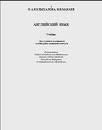Название: Английский язык Жанр: Филология Рейтинг: Просмотров: 2939 |
«filters against folly»by Garrett Hardin A civilization is defined by the dreams it renounces. Whenever there is a mismatch of supply and demand there are two ways of dealing with the situation in words: we can speak of either a shortage of 5 supply or a longage of demand. The alternatives are, in logic, equally valid. But for a long time our civilization has repressed the thought of longages of demand. The suppression may have been for good practical reasons, but all acts of suppression end up by stunting the mind. A basic insight of ecology is that 10 there are real 10 limits to the world (though we sometimes make mistakes in defining them). The recognition of limits makes possible the development of accurate methods of accounting, without which no honest description of the world is possible. Historically, the belief in infinite supplies has greatly stimulated 15 innovation. As we approach the limits this belief becomes less fruitful.Finally, it becomes dangerous. When our civilization renounces the dream of infinite supplies it will move into a new and saner mode. Exercise: 1. «A civilization is defined by the dreams it renounces.» (1.1) What dream(s), if any, has our civilization renounced? ________________________________________________________________ What dream(s), if any, does the writer think our civilization should renounce? ________________________________________________________________ 2. a.»But ... demand» (11. 5-6) the implication here is that we prefer talking about ___________, rather than considering the problem of________________. b. The word _____________ (in 1.6) is the equivalent of the word «suppression» in 1.7. The renunciation of the dream of infinite supplies (11.16— 17) is the equivalent of the recognition of___________ (one word)
3. a. «though ... them» (11. 10 ). Here Hardin tells us that we sometimes make the mistake of defining these limits too narrowly, and then, having discovered our error, we make the further mistake of exaggerating in the opposite direction: i. e., we assume there are ________ limits. 3. b. «As we approach the limits this belief becomes less fruitful.» (1. 14-15). i. The «limits» of what?______________________________________________ ii. To become .... fruitful (1. 15) is the equivalent of which phrase in the preceding sentence? (i e., in 1. 14) 4. It is impossible to give an «honest description of the world» (1. 12) without ________________________
|
|

|
- Акмеология
- Анатомия
- Аудит
- Банковское дело
- БЖД
- Бизнес
- Биология
- Бухгалтерский учет
- География
- Грамматика
- Делопроизводство
- Демография
- Естествознание
- Журналистика
- Иностранные языки
- Информатика
- История
- Коммуникация
- Конфликтология
- Криминалогия
- Культурология
- Лингвистика
- Литература
- Логика
- Маркетинг
- Медицина
- Менеджмент
- Метрология
- Педагогика
- Политология
- Право
- Промышленность
- Психология
- Реклама
- Религиоведение
- Социология
- Статистика
- Страхование
- Счетоводство
- Туризм
- Физика
- Филология
- Философия
- Финансы
- Химия
- Экология
- Экономика
- Эстетика
- Этика
Лучшие книги
Гражданский процесс: Вопросы и ответы
ЗАПАДНОЕВРОПЕЙСКОЕ ИСКУССТВО от ДЖОТТО до РЕМБРАНДТА
Коммуникации стратегического маркетинга
Консультации по английской грамматике: В помощь учителю иностранного языка.
Международные экономические отношения


 Читать: Part
i Section 1. introduction to word power (wp)
Читать: Part
i Section 1. introduction to word power (wp)
